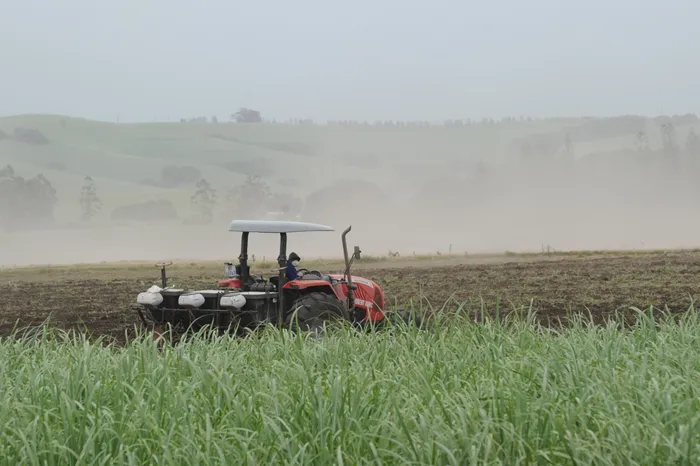How South Africa's agricultural sector is strengthening trade relations with the EU

Agricultural Business Chamber of South Africa (Agbiz) believes that Deputy President Paul Mashatile's recent visit to France is good news for trade relations for the European Union (EU) and South Africa’s agricultural sector.
Image: Karen Sandison/ Independent Newspapers
Agricultural Business Chamber of South Africa (Agbiz) believes that Deputy President Paul Mashatile's recent visit to France is good news for trade relations for the European Union (EU) and South Africa’s agricultural sector. Farming associations in the agricultural sector also welcomed the news.
Wandile Sihlobo, Agricultural Business Chamber of South Africa, said on Monday that last week South Africa’s Deputy President, Paul Mashatile was in France to promote economic cooperation , amongst other things, between the countries.
“Mashatile’s visit did not receive much attention as the developments of the Oval Office continued to be the primary focus. But at its core, the work he was doing in France, and by extension, the greater EU, is aligned with the US visit by the South African President, Cyril Ramaphosa, to seek to strengthen relations, attract investment and deepen trade.”
Sihlobo said the EU is one of South Africa’s important trading partners.
“If we focus on agriculture and assess the EU’s participation, it is very encouraging. In the $13.7 billion (R274bn) of South Africa’s agricultural exports in 2024, the EU accounted for 19% and was the third-largest agricultural trading partner after the African continent and the collective Asia and the Middle East regions.”
Citrus, grapes, wines, dates, avocados, pineapples, fruit juices, apples and pears, berries, apricots and cherries, nuts, and wool were amongst the top agricultural products South Africa exported to the EU in 2024.
“The South African agricultural sector has faced various challenges in the EU market, particularly in citrus. For example, the EU recently used non-tariff barriers by alleging a “False codling moth”, a citrus pest, in South Africa and requiring citrus products to be kept at certain temperatures before accessing the EU market,” he said.
Sihlobo added that this issue happened while South Africa had already treated the products to eliminate the chances of such a pest occurrence. “In a way, one could argue that this was a subtle form of protecting Spanish farmers, who are also major citrus producers within the EU market. Still, this does not change the fact that many agricultural value chains in South Africa have prospered over the years, leaning on the EU market. Importantly, as in the past, we all want to resolve citrus friction and for the countries to affirm a long-term better trading environment for all products.”
Sihlobo said while South Africa works to resolve and deepen trade with regions such as the US, where there are higher tariffs, and China, a vital market, but with higher tariffs and phytosanitary barriers, we must not overlook the existing markets that have contributed to our prosperity.
“We should continually engage with the EU, UK, Middle East, and the greater African continent to deepen relations, trade and investment. The continuous conversation about agricultural export diversification within BRICS nations, such as China, India, and Saudi Arabia, is not a replacement for the long-existing relations with the EU and other trading partners.”
TLU SA general manager, Bennie van Zyl, said that the association believes that South Africa should keep the country's existing markets intact. “It is important as we do have the infrastructure to keep our existing markets. However, we believe that it is good news to develop new markets. The export market is very important. It allows us to increase our yield and production. This brings financial value into the fiscus. So it's always good news when there are new markets for export.”
Van Zyl added that TLU SA hoped that the trade relations expand further to other countries in the EU. “We hope that South Africa is able to have a solution for trade relations between South Africa and America. We also hope that the issue with tariffs is also resolved and we as South Africa get acceptable tariffs.”
Jaco Minnaar, the president of Agri SA, said it's always very important to retain South Africa's current markets and open up new ones. “The more we can export, the more we can produce locally, bringing in much-needed foreign capital and more investment. In the end, we create more jobs, sustain the rural communities and benefit local consumers because of better local availability and pricing. Europe remains a very important market for our agricultural products, and if we could address issues and simplify exports, it will support the industry.”
Visit: https://businessreport.co.za/
BUSINESS REPORT